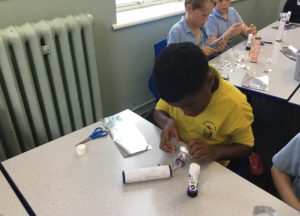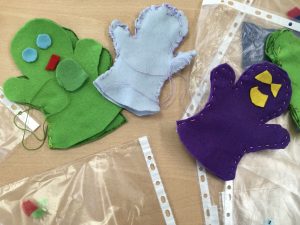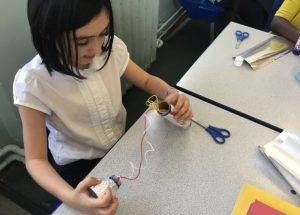


Design and Technology is an inspiring, rigorous and practical subject. Using creativity and imagination, pupils design and make products that solve real and relevant problems. Children acquire a broad range of subject knowledge and enhance their technical skills. Pupils learn to become more resourceful, innovative and enterprising. They learn to evaluate past and present designs, and develop a critical understanding.
– National Curriculum, Design and Technology
Our vision at Sherington is to promote young designer’s curiosity and creativity through engaging lessons that promote a true love of learning. Children are encouraged to take a keen interest in the world around them and question how it works. At a time of great technological advancement, the teaching of Design and Technology inspires children to learn about how things work, examining existing designs and exploring their manufacture. This in turn promotes a strong desire in our children to design and make their own functional products for particular and practical purposes.
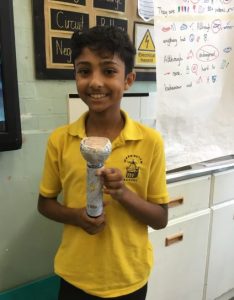 Design and Technology provides children with an opportunity to use skills learned in other subjects in a practical way as well
Design and Technology provides children with an opportunity to use skills learned in other subjects in a practical way as well 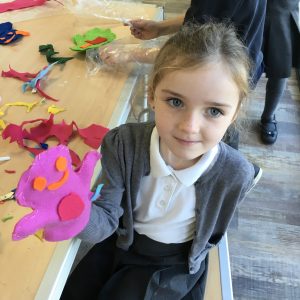 as nurturing new knowledge that can be applied elsewhere. At Sherington, all aspects of the curriculum are included when studying D&T. By exploring the properties of materials and their applications, children gain a better understanding which can aid them in their scientific studies. Children are also able to exercise skills learned in their maths lessons; D&T provides a great opportunity to demonstrate the practical benefits of mathematical knowledge such as measuring length, width, area and volume as well as considering the impact of weight on any design. Sherington strives to deliver a curriculum that exposes the children to a wide range of skills, embedding them at an early stage of their lives and preparing them for a future that will rely more on a creative and computer literate workforce. Children are given the opportunity to develop a working knowledge of Computer Aided Design and using computer hardware and software to build and program their own electrical systems. Other subjects such as humanities are brought to life by being linked to D&T, whether it is creating puppets in KS1 in response to the study of toys throughout history or designing and 3D printing a Roman arrowhead in KS2. In addition to this, every year the pupils of Sherington celebrate Healthy Eating Week by preparing a nutritious meal in the classroom. This valuable opportunity not only provides children with a chance to familiarise themselves with common kitchen utensils, and their safe use, but also encourages a life-long desire to sustain a healthy diet and improve personal health and physical fitness.
as nurturing new knowledge that can be applied elsewhere. At Sherington, all aspects of the curriculum are included when studying D&T. By exploring the properties of materials and their applications, children gain a better understanding which can aid them in their scientific studies. Children are also able to exercise skills learned in their maths lessons; D&T provides a great opportunity to demonstrate the practical benefits of mathematical knowledge such as measuring length, width, area and volume as well as considering the impact of weight on any design. Sherington strives to deliver a curriculum that exposes the children to a wide range of skills, embedding them at an early stage of their lives and preparing them for a future that will rely more on a creative and computer literate workforce. Children are given the opportunity to develop a working knowledge of Computer Aided Design and using computer hardware and software to build and program their own electrical systems. Other subjects such as humanities are brought to life by being linked to D&T, whether it is creating puppets in KS1 in response to the study of toys throughout history or designing and 3D printing a Roman arrowhead in KS2. In addition to this, every year the pupils of Sherington celebrate Healthy Eating Week by preparing a nutritious meal in the classroom. This valuable opportunity not only provides children with a chance to familiarise themselves with common kitchen utensils, and their safe use, but also encourages a life-long desire to sustain a healthy diet and improve personal health and physical fitness.
Throughout Sherington pupils will be taught to develop different skills. Lessons are carefully planned to prepare the children for the next stage of their learning, taking into account prior knowledge and building on previous success.
In Key Stage 1
Children will be taught to:
In Key Stage 2
Children will be taught to:
The impact of this subject has been shown to develop children’s skills through collaborative working, problem solving and knowledge of design, materials, structures, mechanisms and electrical control. Pupils also think more creatively and develop a better understanding of important issues including sustainability and personal health.
